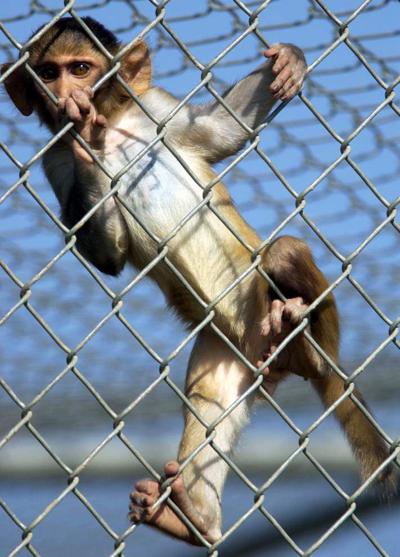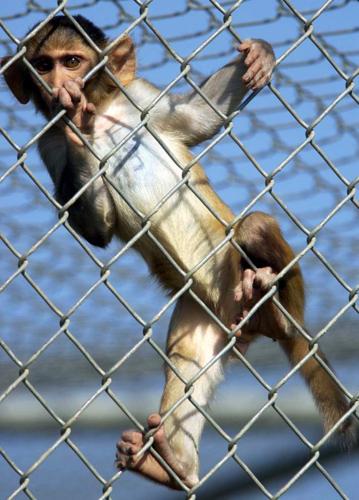Acadiana could see another non-human primate research center in the future.
The Louisiana State University Board of Supervisors at its April meeting approved a request from LSU-Eunice Chancellor Nancee Sorenson to create a proposal to bring the research center to life.
Sorenson told The Advocate she’s “enthusiastic” about the opportunity but there are a “lot of steps to complete” between now and approval for the creation of the center.
“It has to fall in line with our research priorities and it has to meet our board and system’s approval,” she said. “I tend to be a possibility thinker. Innovation, positivity and creativity have to be at the top of our brain.”
The center would be completely funded by external sources and there would be no capital risk to the LSU system, Sorenson told the board of supervisors. She did not say how much funding would be involved. The center could be developed as part of a lease agreement on a portion of 80 acres of land that belongs to LSU-E.
If everything is approved and the center is built, it would benefit students across all of LSU’s campuses and the Eunice community, Sorenson said.
“This will be a huge economic and workforce development benefit, not only through the teaching and learning of our students,” she said. “But it will create permanent jobs in the Eunice area, which if you know the area, are badly needed. The quality and caliber of these jobs will be incredibly unique for the area.”
The immediate impact would be through job creation — about 30 permanent jobs in the first phase and about 65 once it begins fully functioning as a research center.
The center could offer multiple points for teaching and learning. It could be a hub for those in a biomedical or veterinary field, Sorenson said. And it could be used by those seeking a certificate, an aspiring medical doctor or someone pursuing a research Ph.D.
“It can create a win for the entire (LSU) system that could create additional research revenue and expenditures,” she said. “It could have broad-reaching implications.”
There also could be opportunities to conduct research for pharmaceutical companies and federal agencies. Sorenson said she’s been told pharmaceutical companies want more primate research centers to be established in the United States.
Having more U.S.-based centers could improve the quality of research, ensure more humane treatment of animals and better protect intellectual property, according to a 2023 report from National Academies of Sciences, Engineering, and Medicine.
There were nearly 150 facilities in 2021 that used non-human primates for teaching, testing, experimentation, research or surgery, according to that report.
Tulane University in New Orleans, which is part of the National Primate Research Centers, and The University of Louisiana at Lafayette have non-human primate research centers.
Sorenson did not have a timeline of when a proposal could be brought back to the LSU Board of Supervisors for final approval, which would be the next step toward creating a facility. Both centers have been scrutinized by animal rights activist groups for their treatment of the monkeys in their care.
“This would be the equivalent of LSU-E winning the lottery, so to speak,” Sorenson told the board of supervisors. “But it’s not just about us. It’s about the entire system.”


